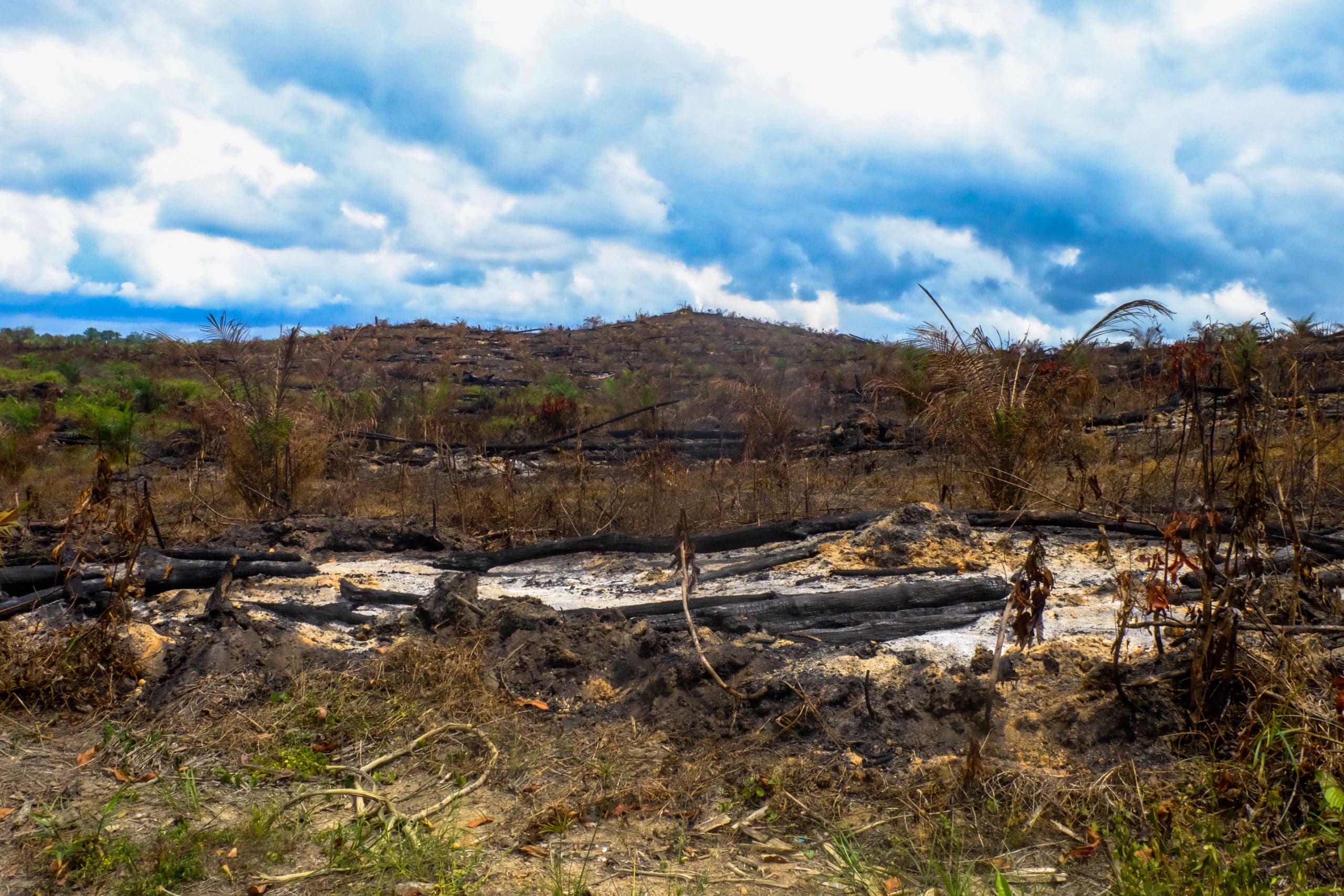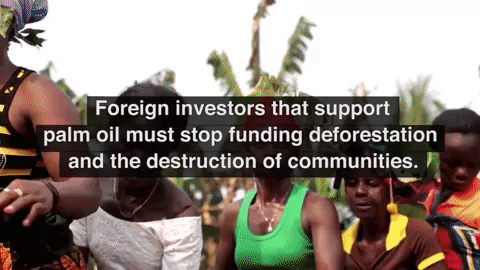- Blog
- Forests
- Land Grabbing, Forests & Finance
- Palm Oil on the Precipice
Palm Oil on the Precipice
by Gaurav Madan, senior forests & lands campaigner

Donate Now!
Your contribution will benefit Friends of the Earth.
Stay Informed
Thanks for your interest in Friends of the Earth. You can find information about us and get in touch the following ways:
Last week, a video of an orangutan battling a bulldozer clearing its habitat for palm oil plantation went viral. The footage, from 2013, was just released by International Animal Rescue and calls on consumers to avoid goods with palm oil.
At the same moment, two petitions highlighting the palm oil industry’s role in widespread deforestation and habitat loss called on grocery chain Trader Joe’s to stop selling palm oil products. Each petition collected tens of thousands of signatures.
Further, a new report released earlier this month by researchers at the Imperial College London found that the palm oil industry cannot accurately guarantee “sustainable” or “deforestation-free” products.
This orangutan tried to fight off a bulldozer nears its forest home pic.twitter.com/D3cOwqwlW1
— NowThis (@nowthisnews) June 10, 2018
While certain campaigns are targeting consumer companies, other efforts are being made to hold the financiers of the palm oil industry accountable. Palm oil is the most widely consumed vegetable oil in the world today. It is estimated to be in roughly half of all consumer goods on supermarket shelves in the United States and Europe.
But the palm oil industry’s problematic profile is well-documented. In addition to destroying endangered species’ habitats and driving deforestation contributing to climate change, palm oil companies are responsible for land grabbing and gross violations of local communities’ human rights.
From Liberia, where palm oil companies are taking communities’ lands without their consent, to Guatemala, where palm oil company REPSA was recently linked to corruption and the killing of an indigenous leader, to Indonesia, where palm oil companies burning of peatlands have caused fires responsible for thousands of respiratory illnesses and millions of tons of carbon released in the atmosphere, the industry is mired in controversy.
In the United States, the top ten investors in palm oil hold more than $18 billion in the destructive industry. At Friends of the Earth, we are demanding investors commit to deforestation-free investment policies that also respect communities’ land rights and exclude egregious palm oil companies that continue to destroy rainforests, infringe on human rights and exacerbate the negative impacts of climate change.
BlackRock, the world’s largest asset manager with $6.3 trillion, is the one of the largest financiers of commodity crops, including palm oil, that are driving widespread deforestation. BlackRock owns tens of millions in palm oil companies that are razing forests from West Africa to West Papua. In addition to palm oil, BlackRock is also one of the world’s largest investors in fossil fuels, another major driver of deforestation.
Last month, BlackRock CEO Larry Fink issued his annual open letter calling on companies to have a “social purpose” beyond immediate profit. But given BlackRock’s own investments in deforestation through palm oil and fossil fuels, alongside the fact that the company has made no explicit commitment to preventing deforestation or land grabbing, the investment firm is way past due its own soul-searching on its social impact.
As more and more consumers, companies, and concerned citizens recognize the devastating impacts of the palm oil industry on human rights, wildlife, and the environment, pressure is only building on investors to respond appropriately. Investors need to recognize that palm oil is on the precipice of disaster and that their responsibilities require them to intervene and demand companies halt their ruinous operations or stop financing the industry entirely.

